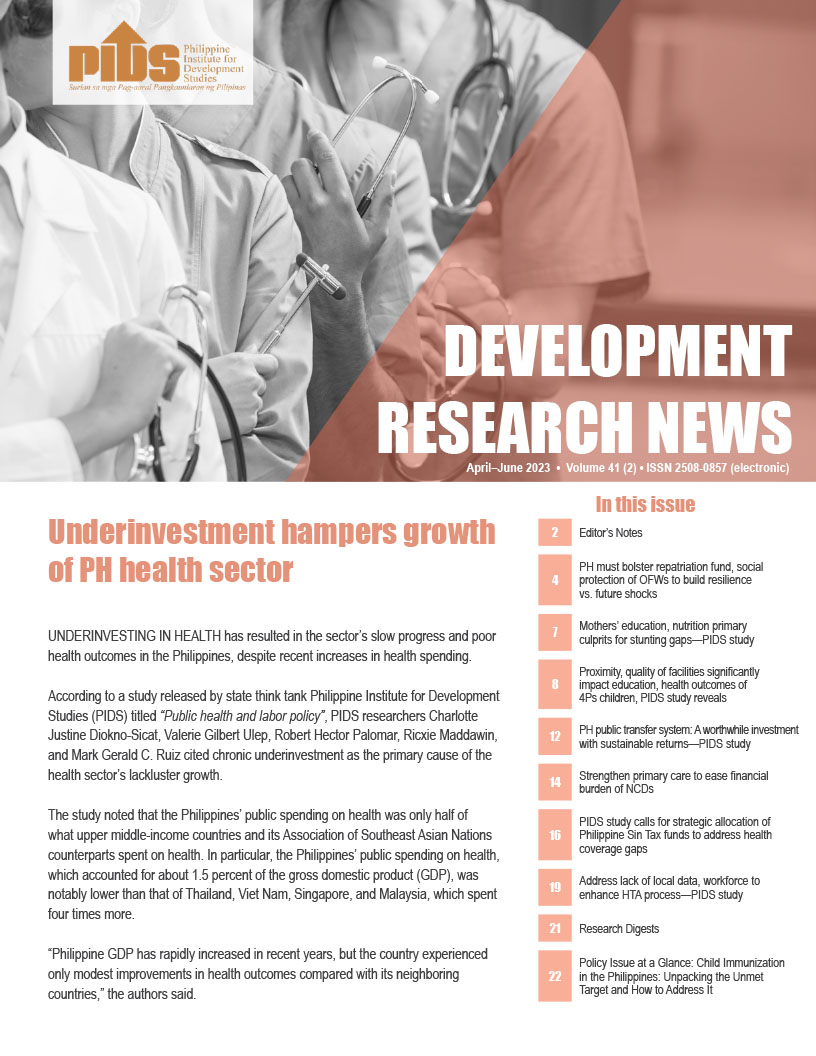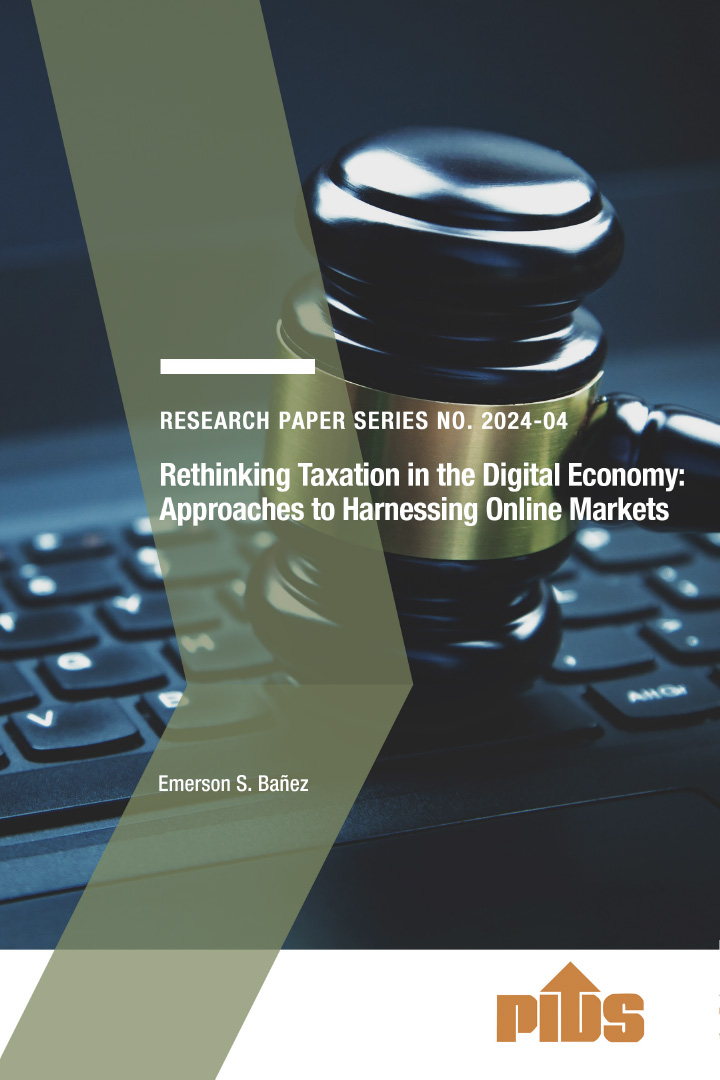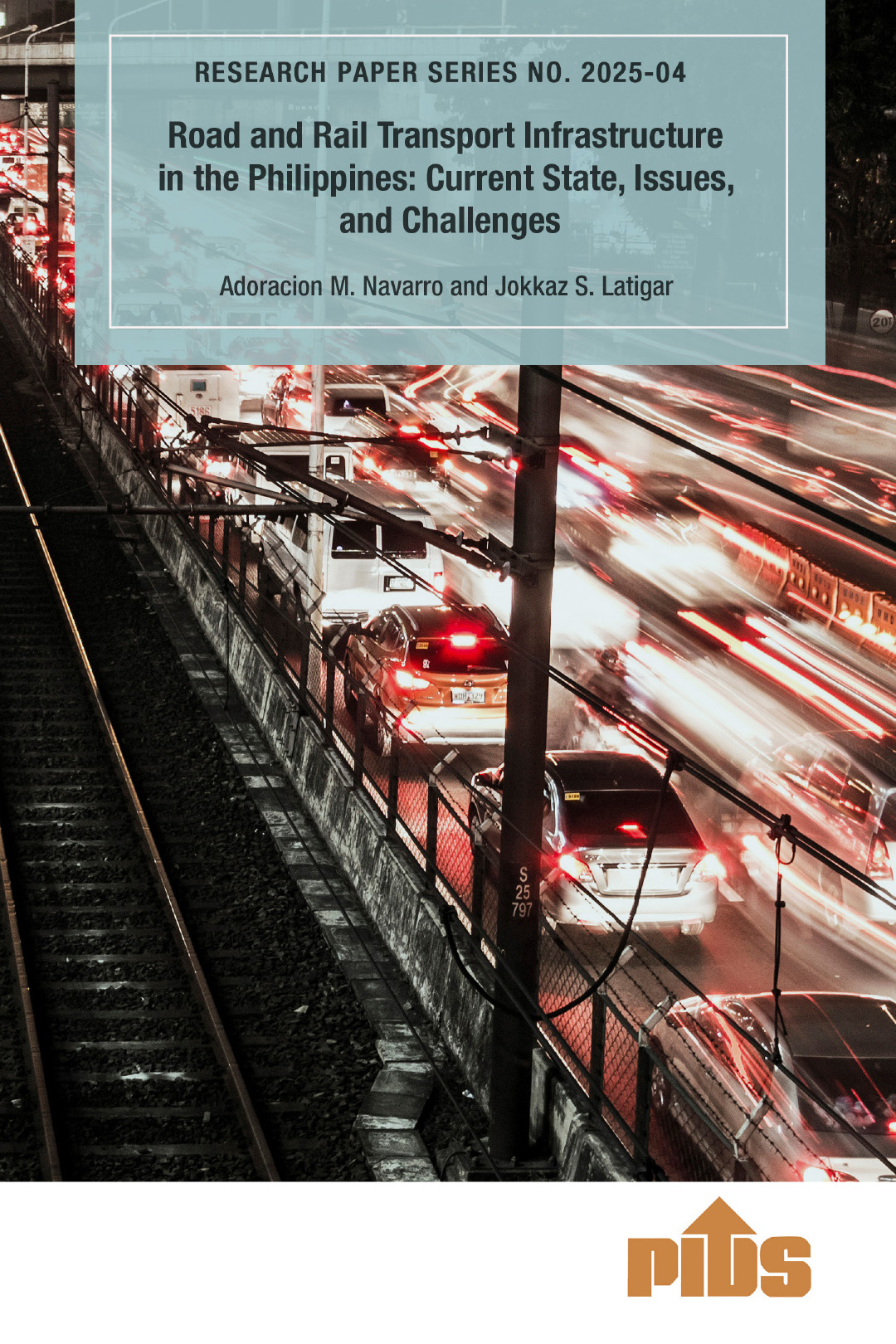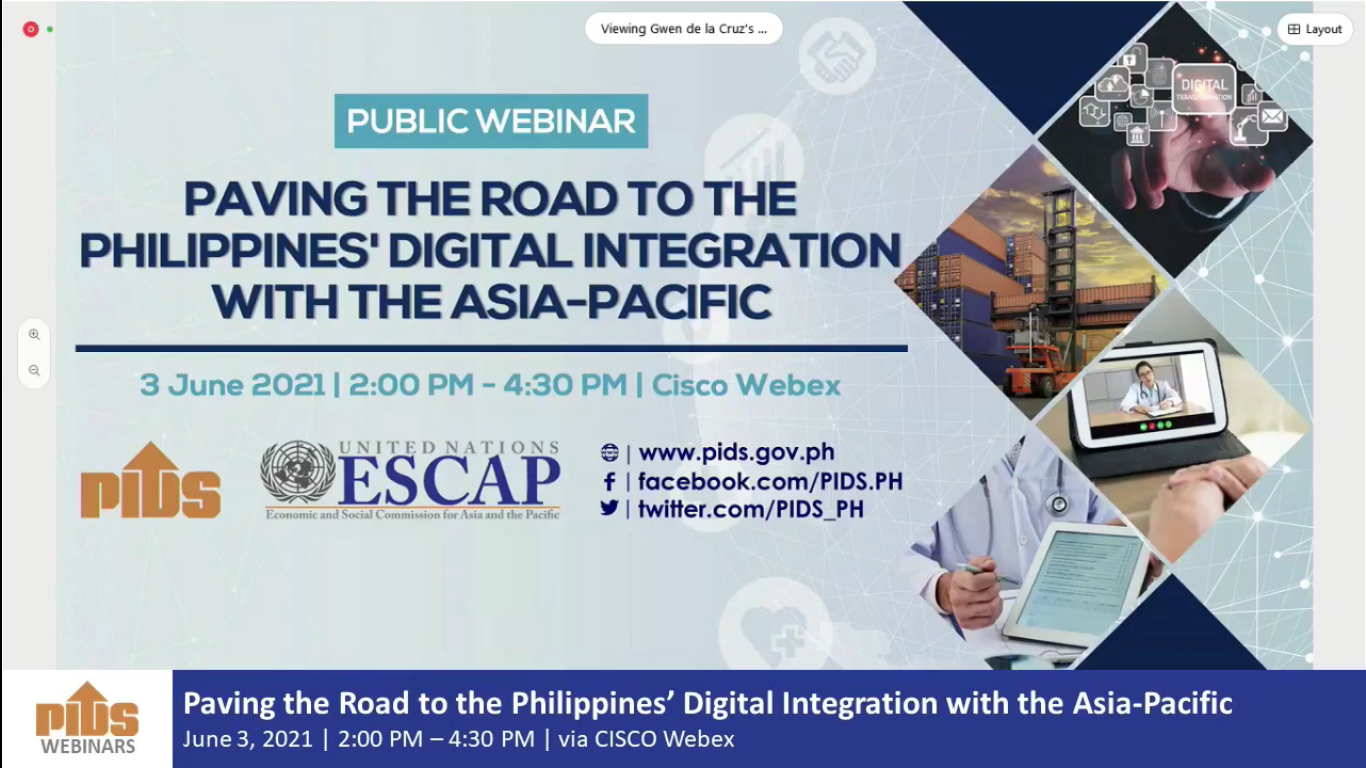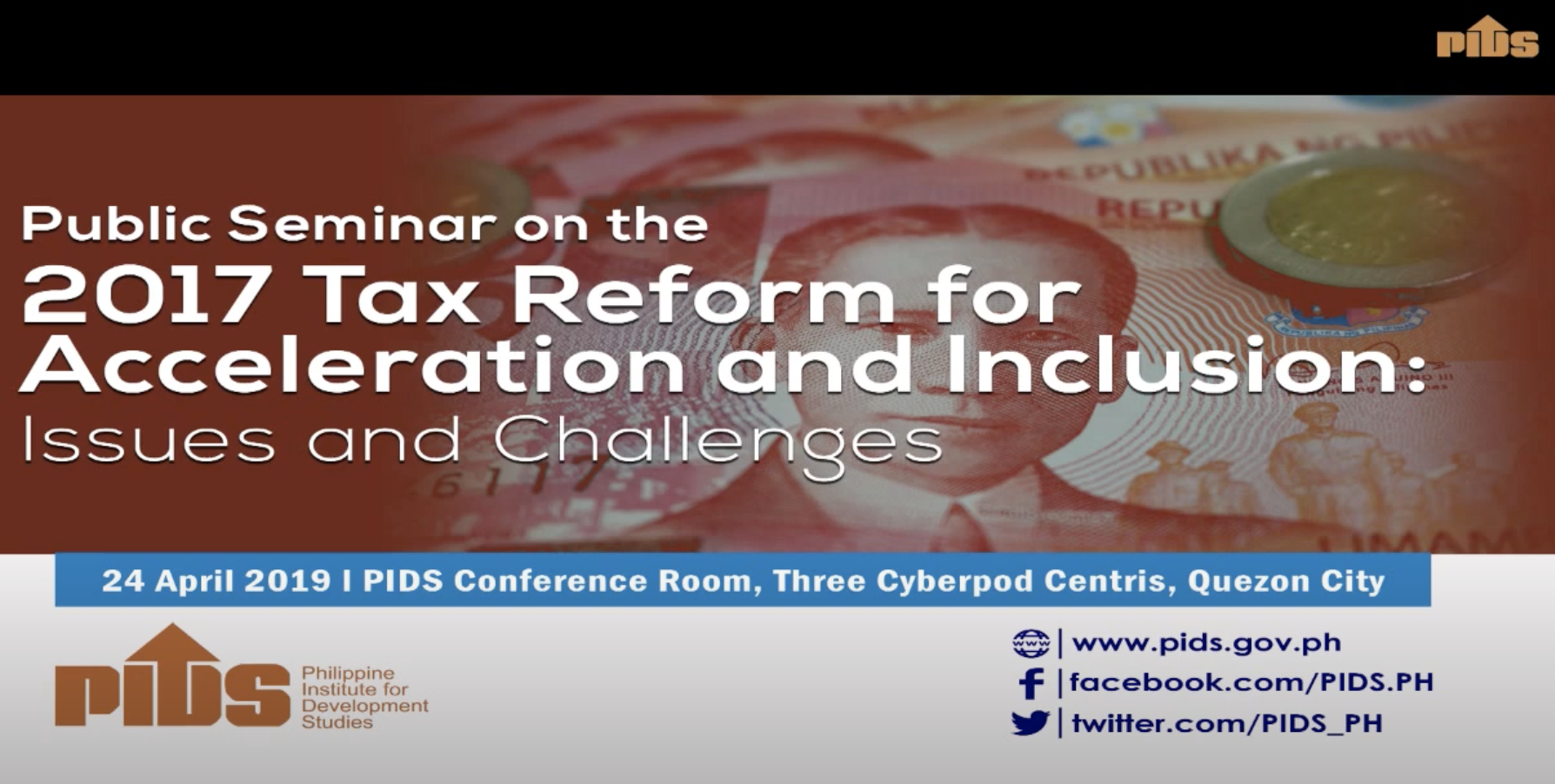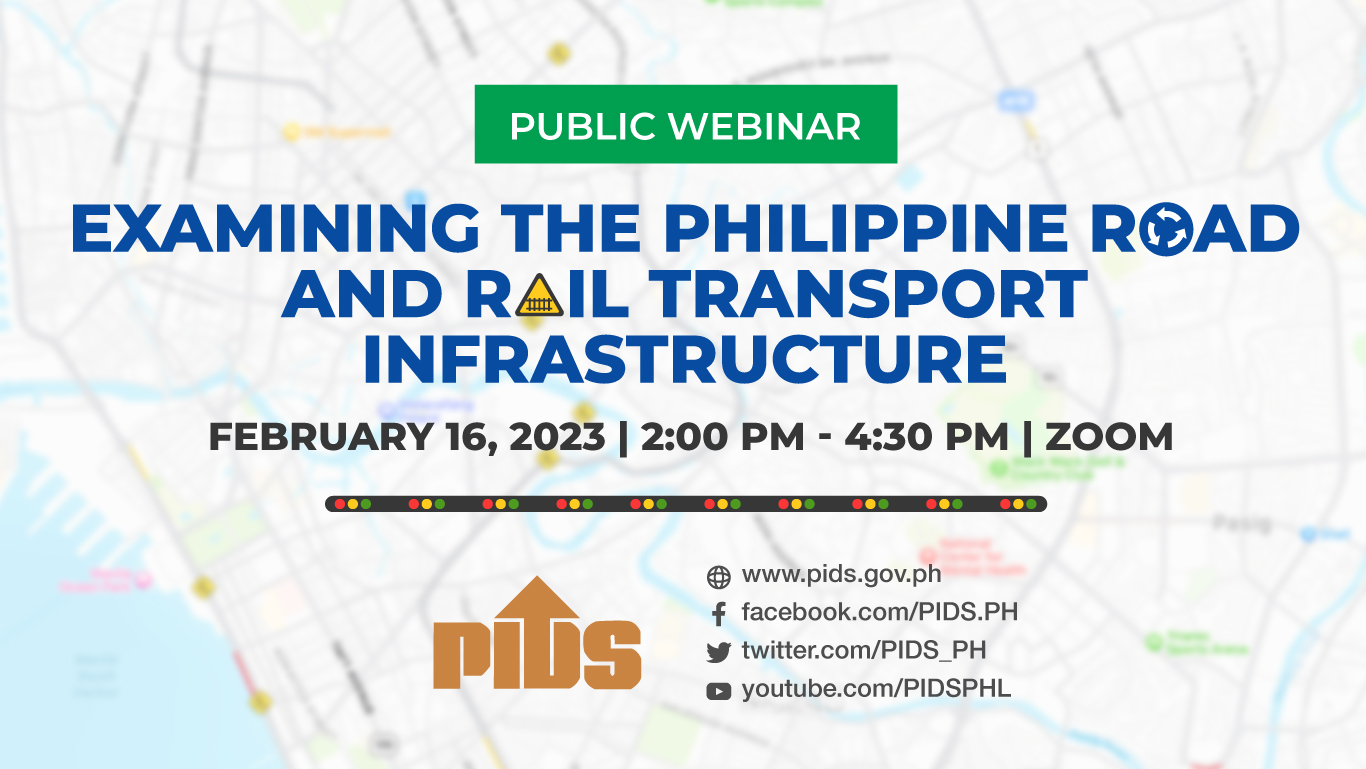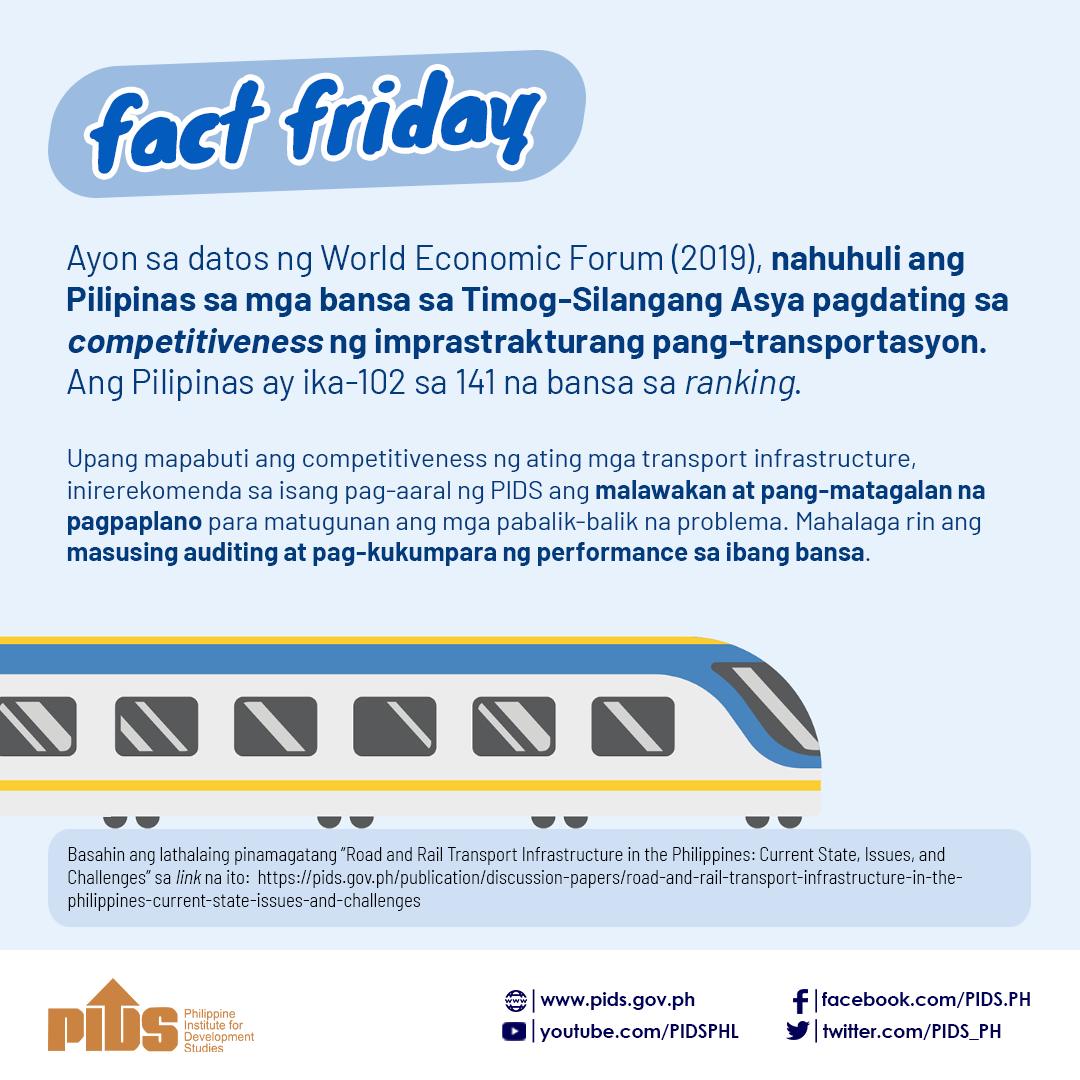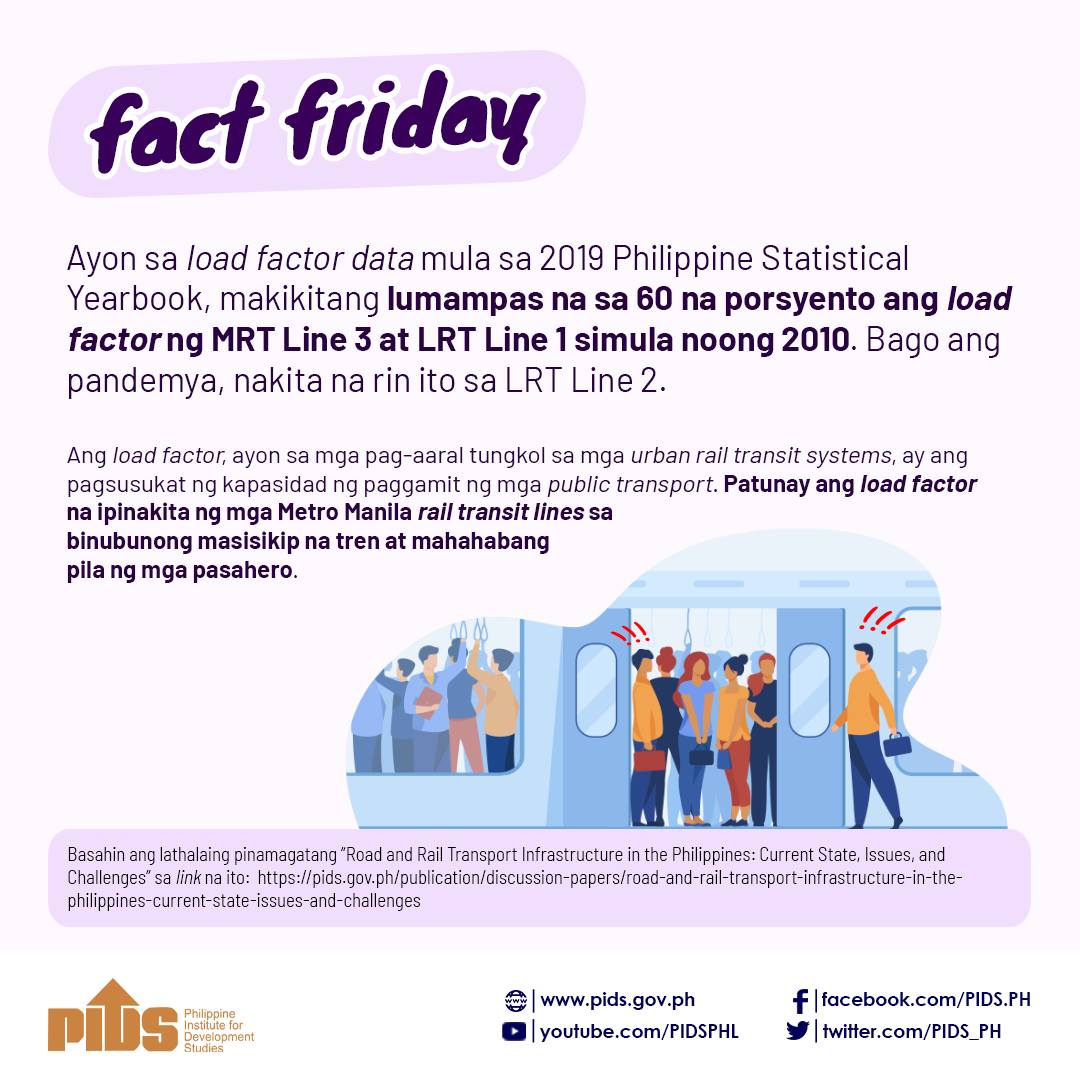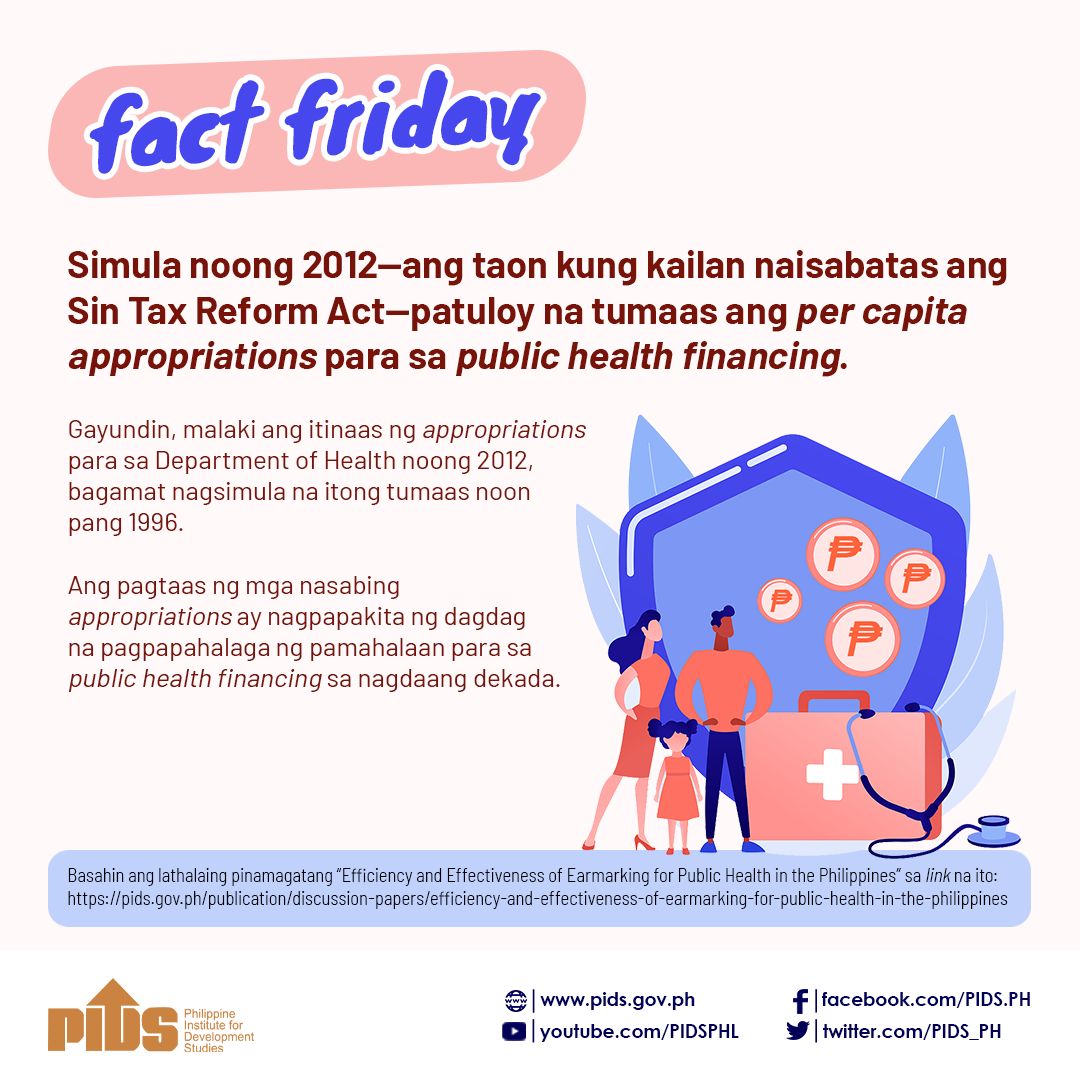The motor vehicle users’ charge (MVUC) needs to be overhauled first to make it more effective and efficient before any rate adjustments are made, the Philippine Institute for Development Studies (PIDS) said.
According to the policy note, The Motor Vehicle User’s Charge: Some issues and recommendations, the law provides for increase in MVUC rates.
“Given that the new administration will need an even greater fiscal space to implement projects, it will only be a matter of time before adjusting the MVUC rates is viewed as a source of additional resources,” the policy note said.
The law states that the Philippine president may adjust the MVUC rates not more than once every five years.
“At this point, there is a need to demonstrate first that the MVUC can be made effective and efficient through an overhaul of the processes and institutional setup,” the report stated.
“Afterwards, the public must be made aware of the improvements and the concrete effects of the changes implemented to gain its support for any proposed increase in the MVUC rates,” it added.
The MVUC, which is imposed through the registration fees of vehicles and penalties for overloading, is envisioned as a source of funding to finance road maintenance and minimize air pollution.
According to Republic Act (RA) 8794, funds collected from the MVUC should be placed in four special accounts in the National Treasury: Special Road Support Fund (80 percent), Special Local Road Fund (5 percent), Special Vehicle Pollution Control Fund (7.5 percent) and Special Road Safety Fund (7.5 percent).
Specifically, the MVUC is intended for road maintenance and improvement of drainage of national, primary and secondary roads; maintenance of local roads, traffic management and road safety devices; installation of traffic signs, pavement markings and safety devices; and for air pollution control.
The research paper said the administration of the MVUC is in dire need of institutional reforms.
The report pointed out that frustration with the MVUC’s performance even led to a proposal, Senate Bill 3131 in the 16th Congress, to amend RA 8794 particularly for the purpose of abolishing the Road Board.
The Senate bill, however, does not propose an oversight arrangement for the MVUC.
“Rather than abolish the Road Board, the more rational option could be to strengthen its oversight capability and transparency. For instance, its membership can be restructured to include other road users, such as business users and the logistics and supply chain sector,” the paper said.
The report noted the country experiences show there is usually a strong representation of the road users in the oversight body.
“An examination of successful cases in other countries also reveals good practices that are worth looking into, such as ensuring that the road fund administrator is strictly an administrator rather than a project implementer, advanced preparation of a long-term vision and short- to medium-term road investment programs, and variations of the reimbursement-basis payment system that are supported by strong audit systems,” it said.
In an earlier discussion paper, Results of the Assessment of the Utilization and Impacts of MVUC in the Philippines, PIDS said the funds collected through the MVUC is underutilized due to the lack of a definitive operating procedure system on how to identify and prioritize projects funded by the said road users’ tax.
“Project identification does not follow the prescribed procedures. The approach is bottom up, rather than top down, (thereby) failing to incorporate a network perspective of accident blackspots, and leading to projects that are not of the highest priority being approved and implemented,” the report said.
The report cited total collections generated from the MVUC fund in 2001 to 2014 stood at P112.5 billion.
The PIDS study said project approval and fund release under the Special Local Road Fund requires the prerogative of the city mayor, leaving the process open to politicking.
“Project implementation is, ideally, a coordinated effort among several government agencies and the Road Board,” the paper said.
“However, in reality, there is evidently a real potential of overlaps of functions, especially between the Department of Public Works and Highways and the Road Board Secretariat,” it added.
The report also cited the lack of transparency, given the absence of a clear schedule for proposal submission and approval of the projects.
It pointed out that this setup leaves the process open to political interference.
Aside from underutilization, the study also enumerated potential sources of discrepancy in fund collection, due to incorrect agency and transaction codes and the lack of a list of deposited collections.
According to the policy note, The Motor Vehicle User’s Charge: Some issues and recommendations, the law provides for increase in MVUC rates.
“Given that the new administration will need an even greater fiscal space to implement projects, it will only be a matter of time before adjusting the MVUC rates is viewed as a source of additional resources,” the policy note said.
The law states that the Philippine president may adjust the MVUC rates not more than once every five years.
“At this point, there is a need to demonstrate first that the MVUC can be made effective and efficient through an overhaul of the processes and institutional setup,” the report stated.
“Afterwards, the public must be made aware of the improvements and the concrete effects of the changes implemented to gain its support for any proposed increase in the MVUC rates,” it added.
The MVUC, which is imposed through the registration fees of vehicles and penalties for overloading, is envisioned as a source of funding to finance road maintenance and minimize air pollution.
According to Republic Act (RA) 8794, funds collected from the MVUC should be placed in four special accounts in the National Treasury: Special Road Support Fund (80 percent), Special Local Road Fund (5 percent), Special Vehicle Pollution Control Fund (7.5 percent) and Special Road Safety Fund (7.5 percent).
Specifically, the MVUC is intended for road maintenance and improvement of drainage of national, primary and secondary roads; maintenance of local roads, traffic management and road safety devices; installation of traffic signs, pavement markings and safety devices; and for air pollution control.
The research paper said the administration of the MVUC is in dire need of institutional reforms.
The report pointed out that frustration with the MVUC’s performance even led to a proposal, Senate Bill 3131 in the 16th Congress, to amend RA 8794 particularly for the purpose of abolishing the Road Board.
The Senate bill, however, does not propose an oversight arrangement for the MVUC.
“Rather than abolish the Road Board, the more rational option could be to strengthen its oversight capability and transparency. For instance, its membership can be restructured to include other road users, such as business users and the logistics and supply chain sector,” the paper said.
The report noted the country experiences show there is usually a strong representation of the road users in the oversight body.
“An examination of successful cases in other countries also reveals good practices that are worth looking into, such as ensuring that the road fund administrator is strictly an administrator rather than a project implementer, advanced preparation of a long-term vision and short- to medium-term road investment programs, and variations of the reimbursement-basis payment system that are supported by strong audit systems,” it said.
In an earlier discussion paper, Results of the Assessment of the Utilization and Impacts of MVUC in the Philippines, PIDS said the funds collected through the MVUC is underutilized due to the lack of a definitive operating procedure system on how to identify and prioritize projects funded by the said road users’ tax.
“Project identification does not follow the prescribed procedures. The approach is bottom up, rather than top down, (thereby) failing to incorporate a network perspective of accident blackspots, and leading to projects that are not of the highest priority being approved and implemented,” the report said.
The report cited total collections generated from the MVUC fund in 2001 to 2014 stood at P112.5 billion.
The PIDS study said project approval and fund release under the Special Local Road Fund requires the prerogative of the city mayor, leaving the process open to politicking.
“Project implementation is, ideally, a coordinated effort among several government agencies and the Road Board,” the paper said.
“However, in reality, there is evidently a real potential of overlaps of functions, especially between the Department of Public Works and Highways and the Road Board Secretariat,” it added.
The report also cited the lack of transparency, given the absence of a clear schedule for proposal submission and approval of the projects.
It pointed out that this setup leaves the process open to political interference.
Aside from underutilization, the study also enumerated potential sources of discrepancy in fund collection, due to incorrect agency and transaction codes and the lack of a list of deposited collections.

